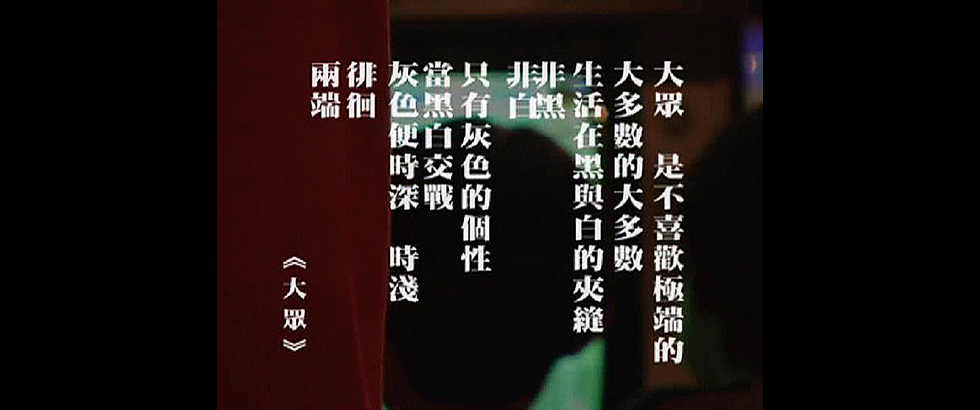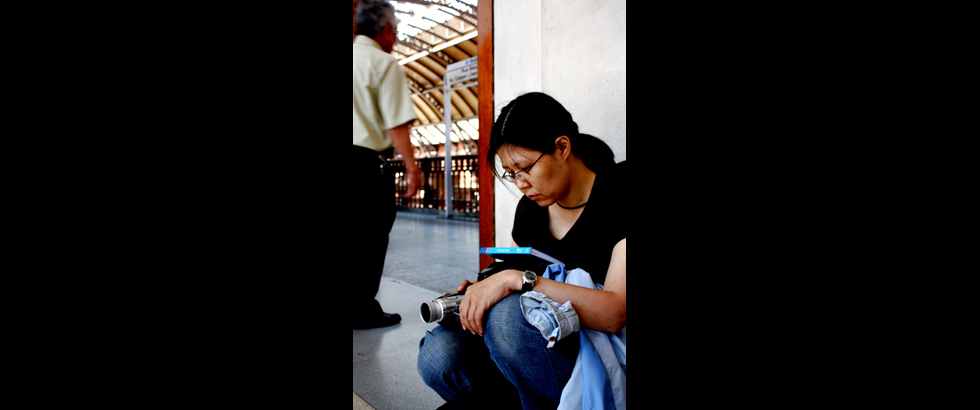Artists
Photo Credit: NIU Chun-Chiang
LIN Hsiao-Fang
LIN Hsiao-Fang
| Location | USA / Los Angeles |
|---|---|
| Residency | 18th Street Arts Center |
| Year of the Grant | 2007 |
| Work | Cheng Shi Si Wei |
During 2001-2004, Hsiao-Fang entered Department of Trans-media studies in Syracuse University, where concentrating on the exploration on cinematic operation, the language of film, narrative structures and the nature of media itself. Hsiao-Fang extended her interest on poetic narration in documentary and rethinks the relationship of East/West cultures, and how identity politics represented in the cinema world. Hsiao-Fang’s purpose is to seek the possibility of trans-cultural understanding, as an immediate task, as well as research on the trans-culture visual language with personal local reflection.
Artist Statement:
For quite some time, I have been interested in trans-cultural understanding and visual language to understand the postmodern pastiche landscape in trans-territory experience, as well as the anachronism and alienation in the new liberal world order. In other words, I focus on how we identify our homeland, make choices regarding migration, and develop our identities within our respective communities.
Recently, I have turned my interest towards visual archive research and how it relates to collective memory. I currently live on an island that includes a long and complicated colonial history in which singularity has been influenced by political sovereignty. Thus, identities have become rather ambiguous and generally unstable. In this case, collective memory from ‘on-site’ witnesses can help preserve the details from the past and clarify them with regard to present-day contexts. Identity thus is no longer fixed ‘Being,’ nor ‘Becoming.’ Pieces of broken images interweave in space and time, flowing back and forth between the past and the present with complexity, waiting to be appropriated in a new context. ‘Homeland’ has become a seemingly clear but distant memory, no longer a symbol of stability. Subjective memory is thus filled with possibilities of truth and imagination.
I was based in Los Angeles durin my residency period, where I conducted ethnographic fieldwork through video documentation and interviews. During my first month of residency, I showcased my portfolio during an open-studio night at the 18th Street Arts Center in Santa Monica, while using the opportunity to exchange ideas with local artists. In order to extend the field of my research within my three-month residency, I traveled from California to Chicago, visiting local Taiwanese non-profit organizations (NPOs) and their respective communities. In particular, I documented subjects in Chicago, and traveled 20 hours by bus to New York City to participate in and film a short video regarding the United Nations Parade for Taiwan.
In addition, I visited the UCLA Film and Television Archive to research any historical images pertaining to Taiwan. This particular collection included images of Taiwan (formerly known as Formosa) from the 1920s to the 1970s. I was stunned by the audio-visual images, especially the newsreels and propaganda concerning the Cold War era and how Taiwan had been referred to as ‘Free China’ or the ‘hope against communism’ when U.S. military forces were ‘reposturing’ after World War II.

